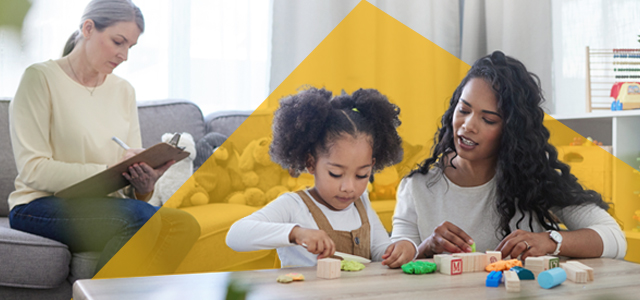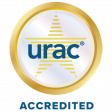
Parenting a Child with ADHD: Tips for Positive Support
Having a child with ADHD (Attention-Deficit/Hyperactivity Disorder) can be a challenge, but with a good plan, you can help your child thrive. ADHD can make it harder for children to focus, sit still, control their impulses and complete tasks. This can lead to struggles at school, at home, and in public. By using the tips below, you can help your child and help boost good behavior.
Set Clear Routines and Expectations
Children with ADHD do well with structure. Routines help them know what to expect and what they need to do. Here’s how to create a routine that works for you and your family:
- Make a daily schedule: Include times for homework, chores, play, and rest.
- Use visual reminders: Try using charts, checklists, or colorful calendars to keep track of tasks.
- Set easy, clear rules: Make sure your child knows what they can and cannot do. Be consistent in enforcing these rules.
By keeping a routine, you help lessen distractions and make it easier for your child to stay on track.
Break Tasks into Small Steps
Children with ADHD can feel overwhelmed by big tasks. Breaking tasks into smaller, easier steps can help them focus better and feel less stressed. For example:
- Homework: Break assignments down into small parts, such as “read one paragraph” or “solve two math problems.”
- Chores: Instead of saying “clean your room,” say “put away toys first, then make the bed.”
- Daily Life: Break the morning routine into small steps like “brush teeth,” “get dressed,” and “pack backpack.”
Use Positive Reinforcement
Rewarding good behavior helps children with ADHD know what they are doing right. Praise and small rewards go a long way in reinforcing good choices. Some ideas include:
- Praise right away: Tell your child what they did well right after they do it. For example, “I love how you sat quietly while we finished dinner!”
- Use a reward chart: Create a simple chart where your child can earn stickers or points for good behavior. Rewards could be extra playtime, a favorite snack, or choosing a family activity.
- Focus on effort: Even if the task isn’t perfect, praise the effort. This boosts confidence and encourages them to try again.
Help Them Manage Energy Levels
Many children with ADHD have a lot of energy and may need breaks to let out some of that energy. Here are some ways to help:
- Take short breaks: When working on homework or other tasks, let your child take short breaks to move around. Even a quick stretch or walk can help them refocus.
- Encourage physical activity: Regular physical activity, like playing outside, riding a bike, or sports, can help your child use up extra energy in a good way.
- Create a “cool-down” space: Designate a quiet space where your child can go to relax if they feel overwhelmed. This can help them learn to manage their own emotions.
- Keep a good bedtime routine: Going to bed at the same time and avoiding over-stimulating activity close to bedtime can help reduce sleep difficulties at night and promote good rest.
Work with Teachers and Caregivers
Children with ADHD do better when everyone in their life works together. Talk with teachers, babysitters, and family members so that everyone knows how to help your child.
- Talk with teachers: Let the teacher know about your child’s needs and discuss plans that work best for them.
- Share your routines: Share routines and rules with babysitters or other caregivers.
- Check-in regularly: Talk with your child’s teachers and caregivers to see what is working and where more help might be needed.
Teach Social Skills
Children with ADHD may have a hard time in public places. You can help them learn to make friends and communicate better by teaching social skills at home.
- Practice taking turns: Play games where you take turns and practice patience.
- Teach “pause and think”: Have your child to pause before talking or doing something. This helps with impulse control and gives them time to think about their words.
- Role play social skills: Practice things like saying hi to someone new, sharing, or asking to join a game.
When to Seek More Help
These tips can make a big change, but some children with ADHD may need more help. You can always talk to a doctor or therapist for guidance. They can talk to you about treatments and medication that can help your child.
Parenting a child with ADHD takes patience, structure, and a lot of love. Remember, small changes can make a big impact over time.
Resources
1. Centers for Disease Control and Prevention (CDC) – ADHD
- Website: cdc.gov/ncbddd/adhd/
2. Children and Adults with Attention-Deficit/Hyperactivity Disorder (CHADD)
- Website: chadd.org
3. American Academy of Pediatrics (AAP) – HealthyChildren.org
- Website: www.healthychildren.org
4. National Institute of Mental Health (NIMH) – ADHD
- Website: nimh.nih.gov






